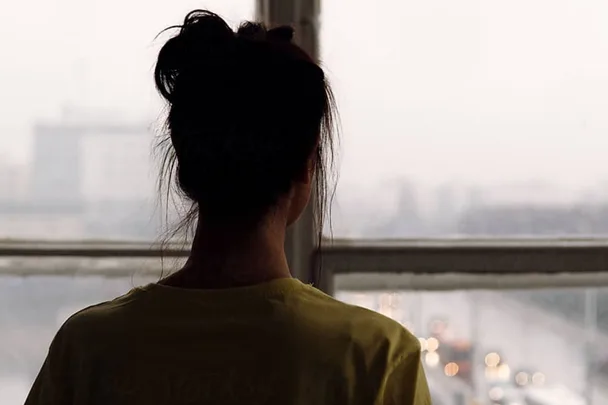After more than 100 days spent in lockdown, the nightmare is finally over for people in NSW. All over the state, people are now trying to resume a normal life following a far from normal experience.
But what does ‘normal’ look like, exactly? And how did our lives feel before all this? If you’re finding yourself asking these questions, you’re not alone. In fact, many of us are feeling incredibly anxious about returning to the ‘real’ world — however it may look now. From returning to the office to Saturday night dinner plans and everything in-between, this newfound ability to leave our houses can feel unbearably overwhelming.
According to Luke Foster, the in-house psychologist for LIVIN, the pandemic has acted as an accelerant for already increasing rates of mental distress and those feelings can persist long after lockdown has ended. Feelings of uncertainty and ambiguity are rife right now, which can often be a huge trigger for feelings of anxiety.
“Re-adjustment can be difficult on our mental health, and just as it took us time to find ways of coping during lockdown, we should also expect that it will take time to find our way back and reconnect with life. Let’s face it, things may not be the same as they were before,” Luke explained.
“The thing about dealing with anxiety, you don’t need to get rid of it completely or slay the dragon so to speak, it’s more about recognising it and learning to skillfully manage it without letting it dictate your life. Anxiety isn’t the problem, often it’s our relationship with anxiety that’s the problem,” he continued.

What can social anxiety look like?
One of the biggest reasons that post-lockdown anxiety has increased exponentially, is that we’re no longer used to interacting with others. Even people who didn’t experience social anxiety before lockdown may be feeling very wary of social situations now — and that’s completely normal. As for what it might look like, Luke explains that it could be a “fear or anxiety specific to social settings, discomfort around social interaction and concern about being embarrassed and judged by others.”
Whether you’re experiencing panic attacks, chest tightening, excessive worrying or obsessive thinking, symptoms of social anxiety can look different for everyone. Luke emphasises that only a qualified doctor is able to diagnose the decision, so it’s important not to play Google doctor yourself.
While you may not be seeking an official diagnosis, nobody knows your body or mind better than you, so if you feel that something might be off, you’re probably right. As we know, in uncertain situations, arming ourselves with knowledge is one of the most comforting things we can do. Below, Luke outlines four helpful things we can do to prepare ourselves for a return to normality. It’s important that we don’t throw ourselves off the deep-end, it’s all about easing back into it in a controlled, calm manner.
What are some things we can do to prepare for ‘normal’ life?
- Finding routines, staying connected, eating well and exercising are just as important now and coming out of lockdown as they were at the start of lockdown. Give yourself time to readjust, have realistic expectations that things might be challenging, and be kind to yourself and others.
- Self-care!! Exercise, listening to music, surfing, reading, nutrition, mindfulness, social support, speaking with a psychologist. There is no one-size-fits all when it comes to self-care. It’s important to establish what works for you, and then prioritise it.
- Get involved in challenges and initiatives. Motivation doesn’t just rock up to your doorstep in an Uber Eats bag…action breeds motivation, not the other way around. One novel way to kickstart motivation is by getting involved in initiatives, challenges. LIVIN has actually partnered with Snap Fitness Australia to launch an initiative called ‘Move Your Mood for Good’ which encourages individuals to move their bodies and improve their mental and physical wellbeing. You can read more about it here.
- Focus on the things you can control. So often we get distressed about things outside of our control. It’s okay to pay some attention to things outside of control, but if we can’t control something, we really need to learn how to accept them and focus on what we can control and influence (like the management of our emotions).

How can we combat social anxiety in the moment?
Whether we like it or not, at some point or another, a situation will likely arise where we feel ourselves having a panic response to a social situation. When this happens, we need to employ a range of tools and exercises to help monitor our response. One helpful strategy Luke recommends for combatting social anxiety, is to focus on turning our attention inside out.
“When we are socially anxious, our attention naturally goes inwards and we start to monitor what say. Questions like ‘should I stand up or sit down, turn this way or that way to look more natural, oh my god why did I say that I sounded like an idiot, am I blushing?’ We become so consumed with ourselves and our own behaviour that it’s very internally focused. Instead, we should work on focusing our attention outwards. Things like concentrating on what the person is saying who we are talking to, taking in the environment, reading a magazine and absorbing the content when sitting in a waiting room are all useful strategies. Essentially, direct your attention towards anything that takes the focus off yourself.”
If all else fails, focusing on your breathing is an incredibly effective strategy that helps to keep your mind occupied and the anxious feelings at bay. Try the exercise below and notice how your mind is forced to quieten as you direct your focus toward the breath.

At the end of the day (and whether we like it or not), the world is a different place now. Whether that’s for better or for worse remains to be seen, but just as our environment is a different place, so are we. Over the past two years, we’ve managed to overcome things we never thought possible — and that in itself is a huge achievement that we should commend ourselves on.
“The pandemic hasn’t broken everyone, in fact if you’re reading this now, it hasn’t broken you,” Luke said. “You may have felt broken at stages, but you’re still breathing. It’s important to reflect on things you’ve done to get through tough periods in your life, including the pandemic. Build on these things. I think many people will have learnt a lot about their resilience and figured out a range of different strategies they can utilise when things don’t go as planned.”
Even if it doesn’t feel like it right now, we’ve drawn strength within ourselves that we never knew we had. That in itself is proof that we’re capable of overcoming the endless obstacles that life seems to throw our way. Are we apprehensive about entering this new world? Absolutely. But do we have enough trust and confidence in ourselves to know we’ll find a way through? Most definitely.










